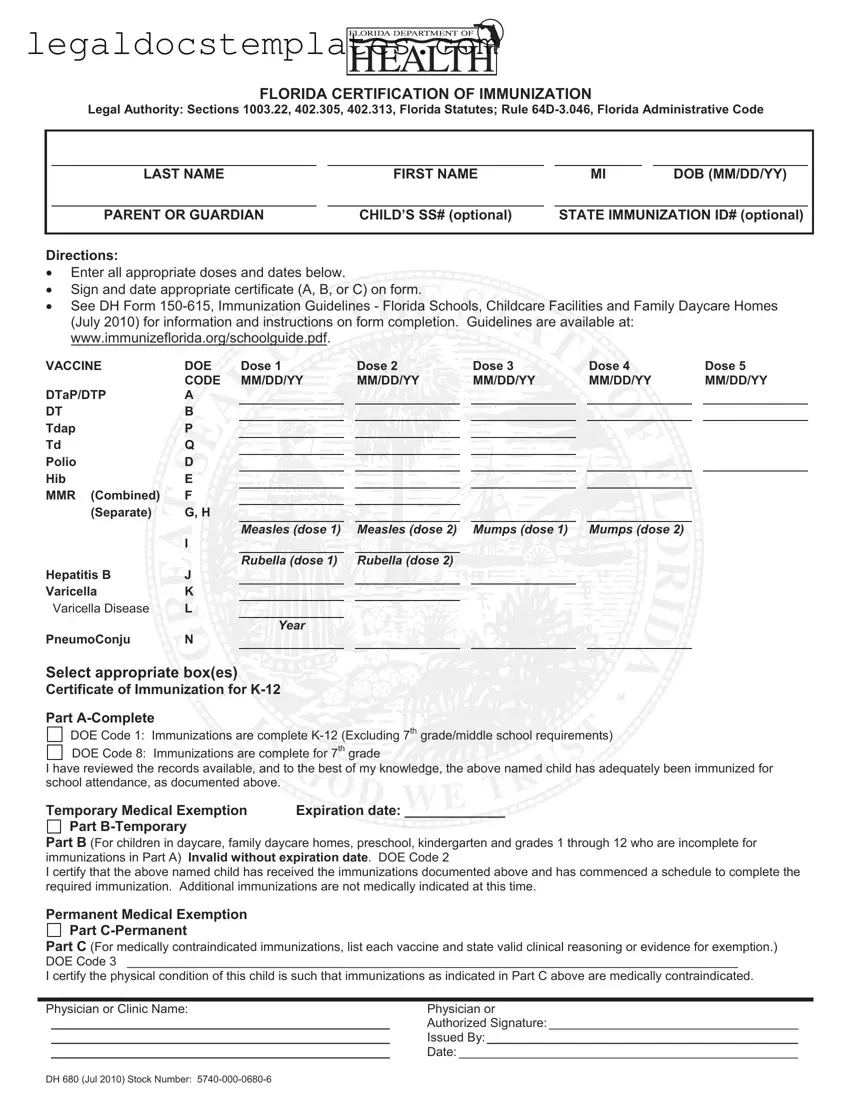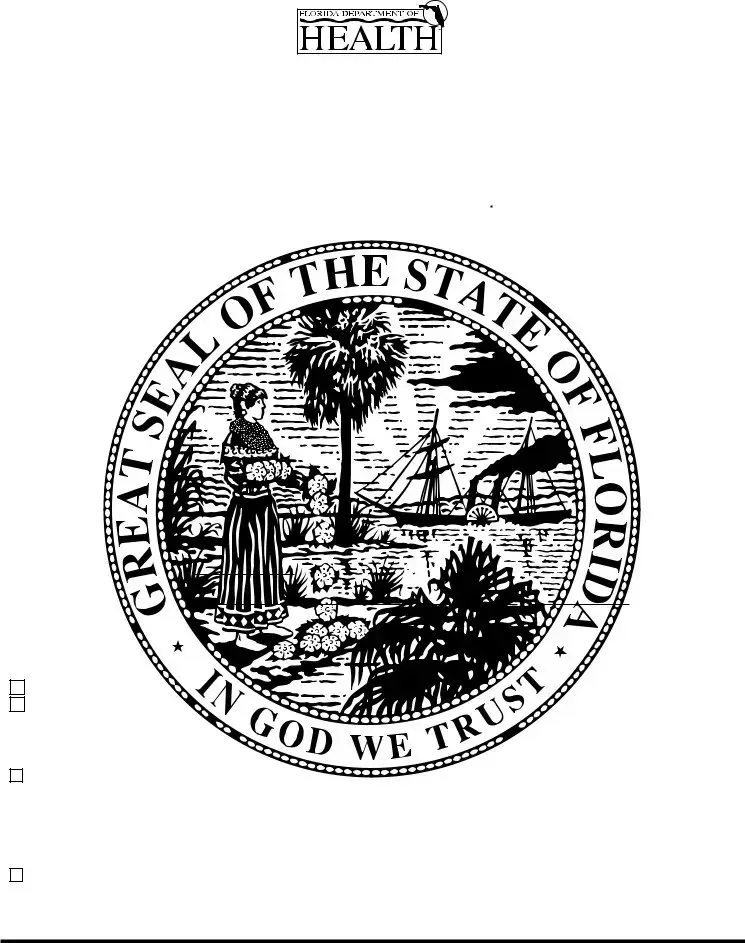The 680 form, a critical document for certifying immunization in Florida, shares similarities with various other documents that adhere to legal and health standards across different sectors. One such document is the I-693 form, used for immigration purposes. The I-693, also known as the Report of Medical Examination and Vaccination Record, must be completed by applicants seeking to adjust status to become permanent residents in the United States. Like the 680 form, it meticulously records vaccinations to ensure public health safety and compliance with vaccination laws, serving a gatekeeping role for entry or participation in a community or institution.
Another document akin to the 680 form is the standard Employment Physical Examination form, which many employers require before individuals begin a new job. This form often includes sections for recording immunization history, much like the 680 form, to ensure that employees are protected against certain diseases. The purpose here, similar to that of the 680 form, revolves around health safety and preventing outbreaks in workplace environments.
The School Enrollment Health Form, required for students to enroll in educational institutions, mirrors the 680 form's function in the educational setting. It documents a child's immunization record alongside other health information, ensuring that students meet the state's immunization requirements for school attendance, thus preventing disease outbreaks in schools.
Health insurance application forms also resemble the 680 form because they often query an applicant's vaccination history. These forms assess risk and coverage terms, indicating how individual health data, particularly immunization records, plays a crucial role in the administration of health services and insurance policies.
The Vaccine Administration Record (VAR) is a document healthcare providers use to record specifics of vaccines administered to patients. While its scope is narrower, focusing on the details of each vaccination event, it shares the 680 form's objective of documenting immunization to ensure individual and public health safety.
The Medical Exemption Form for Vaccinations is another document similar to parts of the 680 form, specifically the section that allows for permanent medical exemptions from vaccines. This document is used when vaccines are contraindicated due to medical reasons, expressing the necessity to bypass standard immunization requirements for health and safety reasons, much like the exemptions detailed in the 680 form.
Travel vaccination documents, required by certain countries for entry, also share similarities with the 680 form. These documents ensure travelers are vaccinated against diseases endemic to the destination, showcasing the importance of immunization records in facilitating safe and healthy travel, akin to the 680 form's role in educational and childcare settings.
The Pre-participation Physical Evaluation form, used in sports and athletics, often includes a section for immunization history. This similarity to the 680 form underlines the role of vaccines in safeguarding participants and the community against vaccine-preventable diseases in physically active and communal environments.
Overall, while the format and specific use of these documents may differ, their underlying purpose aligns closely with that of the 680 form: to record and verify immunization status for the safety and well-being of the individual and the community at large.


 or C) on form.
or C) on form.










 box(es)
box(es)
 K-12
K-12 are complete for 7
are complete for 7 and to the best of my knowledge, the above named child has adequately been immunized for school attendance, as documented above.
and to the best of my knowledge, the above named child has adequately been immunized for school attendance, as documented above.

